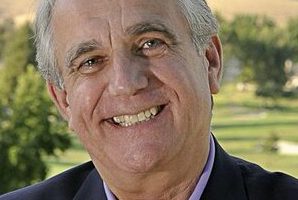Column: CEO Learnings
Book Review of Team of Teams: New Rules of Engagement for a Complex World, by McChrystal, U.S. Army (Ret.) with Silverman, Fusell and Collins.
General Stanley McChrystal, U.S. Army Retired, took command of the Joint Special Operations Task Force in the Middle East in 2003 and transformed it from a hierarchical organization built on efficiency and discipline to a fluid, information-rich, decentralized organization. The revamped organization was built for speed and agility and led to the defeat of Al Qaeda and more recently with coalition forces, ISIS.
Team of Teams is the work of McChrystal, Dave Silverman and Chris Fusell, former Navy Seals who fought in combat, and Tantum Collins, a Marshall Scholar who was a student of McCrystal’s.
Why Efficiency is not enough
McChrystal and his colleagues learned that complexity at scale has rendered reductionist management ineffective for leadership in our increasingly networked world. Efficiency is necessary but no longer sufficient for an organization to be successful. Speed and the exaggerated impact of small players, such as terrorists, start-ups and viral trends are overwhelming traditional organizations.
Traditional organizations are not adaptable. As author Pat Lencioni (Silos, Politics, and Turf Wars, Five Dysfunctions of a Team) has pointed out, organizations seeking creativity, collaboration, agility and speed need to break down silos and work across groups. Agility and adaptability are normally limited to small teams and cannot be scaled.
McChrystal’s game-changing insight
McChrystal in his Team of Teams shares insights and his personal evolution that led to the transformation of his Task Force from one that suffered frequent and disastrous set-backs to one that could match—and then beat back—networked terrorist organizations which could strike rapidly, reconfigure in real time and integrate its globally dispersed actions.
McChrystal’s first action item was to “unlearn.” He had to tear down familiar organizational structures and rebuild them along completely different lines swapping the traditional organizational architecture for organic fluidity. His focus had to shift from getting rid of silos that had once contributed to efficiency to integrating and scaling those behaviors that enable agility and speed at the enterprise level.
Five topics covered
Team of Teams is organized around the following five topics:
- The challenge of the new environment: Accelerating speed and interdependence in today’s world has created levels of complexity that confound even the most superbly efficient organizations. Contrary to popular belief, big data will not offer any relief from the unrelenting demand for continual adaptability.
- The myths and magic of teams: What is it that creates the trust and common purpose that bond great small teams and why do so many small teams and firms falter as they grow and scale. It concludes that it does not take supermen to forge super teams.
- The keys to today’s increasingly complex environment: Trust, transparency and communication can produce extraordinary outcomes across even large groups. But the simple concept of trust is anything but simple to create.
- An historical review of leadership to the new evolving model of “Eyes On-Hands Off”: The advantages and imperatives of truly empowered execution and organization – pushing decision-making and ownership to the right level for every action – are examined. Included are stories of Commodore Perry; and on-the-spot decisions in Iraq on who will live and who will not.
- The fundamental changes needed for leaders and organizations to succeed and survive in the new environment.
McChrystal makes a compelling case that his experience can provide a template for leadership across any industry or domain in a world filled with growing change and complexity.
New Rules of Engagement
“Organizations need new rules for engagement for an increasingly complex world,” according to McChrystal. Whatever field you’re in or whatever stage of leadership, he feels these insights and skills will prove necessary to learn. There is a new and increasingly important role for senior leaders. Traditional leaders and organizations are an endangered species.
Team of Teams resonated with my experience at American Hospital Supply Corporation. The company’s founder created an environment of trust and pushed decision-making down to the lowest level. AHSC was ahead of its time with its team of teams (19 Divisions) organizational structure that proved collaborative, agile and fast…and an incubator for industry leaders. (American Hospital Supply – An Historic Incubator of Leadership Talent; Arons and Ruh; Korn Ferry; April 2012)
 Listen to The MENTORS RADIO exclusive interview of General (Ret.) Stanley McChrystal by my co-host, Dan Hesse, former SPRINT CEO, at https://thementorsradio.com/348-host-dan-hesse-talks-with-genl-ret-stanley-mcchrystal-about-leadership-building-teams-and-risk-response/. This show was previously broadcast worldwide on The Salem Radio Network and iHeartRadio.
Listen to The MENTORS RADIO exclusive interview of General (Ret.) Stanley McChrystal by my co-host, Dan Hesse, former SPRINT CEO, at https://thementorsradio.com/348-host-dan-hesse-talks-with-genl-ret-stanley-mcchrystal-about-leadership-building-teams-and-risk-response/. This show was previously broadcast worldwide on The Salem Radio Network and iHeartRadio.
RELATED RESOURCES:
- Team of Teams: New Rules of Engagement for a Complex World, by Stanley McChrystal, Tantum Collins, David Silverman and Chris Fussell
- INTERVIEW on The Mentors Radio: Dan Hesse talks with General (Ret.) Stanley McChrystal about Leadership, Building Teams and Risk Management
- American Hospital Supply – An Historic Incubator of Leadership Talent, by Arons and Ruh
- The Five Dysfunctions of a Team, by Patrick Lencioni
View Articles Thomas M. Loarie is a popular host of The Mentors Radio Show, the founder and CEO of BryoLogyx Inc. (BryoLogyx.com), and a seasoned corporate... MORE »




You must be logged in to post a comment.